IPPCAAS Develops a New Resistance Management Product—Cycloxaprid Nanogels
The Institute of Plant Protection, Chinese Academy of Agricultural Sciences (IPPCAAS) published a research paper titled “Fabrication of nanogels to improve the toxicity and persistence of cycloxaprid against Diaphorina citri, the vector of citrus huanglongbing” in the internationally renowned journal Journal of Advanced Research (Impact Factor: 11.4). The study introduces a novel resistance management product—cycloxaprid nanogels—which significantly improves the penetration and stability of the pesticide on citrus leaves and within the gut of Diaphorina citri (the vector of citrus huanglongbing), achieving over a 20% improvement in field control efficacy compared to conventional cycloxaprid wettable powder.
Cycloxaprid, a novel cis-nitromethylene neonicotinoid insecticide independently developed in China, is highly effective against resistant citrus psyllids and other piercing-sucking pests such as cotton aphids. However, its stability is poor, particularly under exposure to water and light, which severely impacts its efficacy. In this study, polyethylene glycol-600 and 4,4 '- methylenebis (phenyl isocyanate) were used as hydrophilic soft segments and hydrophobic hard segments, respectively, to facilitate the self-assembly of polymers in aqueous solution and the gelation of polyurethane, leading to the synthesis of amphiphilic hydrogel micelles for the efficient encapsulation and delivery of cycloxaprid.
The study's findings demonstrate that the cycloxaprid hydrogel has excellent resistance to UV degradation and rainwater wash-off. Under UV light, the active ingredient in the hydrogel was 80% higher than the control group, and its degradation rate was reduced by 50%. Additionally, under rainwater wash-off, the retention of the active ingredient on citrus leaves was 50% higher than the control group. The hydrogel also enhanced the wetting and adhesion properties of the pesticide on target leaves, improving its insecticidal effects. Moreover, the hydrogel significantly enhanced the penetration and stability of the pesticide within both the citrus leaves and the gut of the citrus psyllids. Fluorescent materials encapsulated in the hydrogel showed stronger fluorescence signals and longer retention times in the citrus leaves and psyllid guts.
Field trials demonstrated that the cycloxaprid hydrogel provided excellent control efficacy against both nymphs and adults of the citrus psyllid. Compared to cycloxaprid wettable powder, the hydrogel formulation improved control efficacy by over 20% at the same dosage. This study provides a new approach for managing the resistance of piercing-sucking pests such as the citrus psyllid and cotton aphid.
The Institute of Plant Protection, Chinese Academy of Agricultural Sciences (IPPCAAS) is the primary institution for the paper. Researcher Cui Li and PhD student Deng Guiyun from Huazhong Agricultural University are co-first authors, while Researcher Yuan Huizhu and Professor Han Heyou from Huazhong Agricultural University are co-corresponding authors. The research was supported by the National Key R&D Program Project (2021YFD1400803).
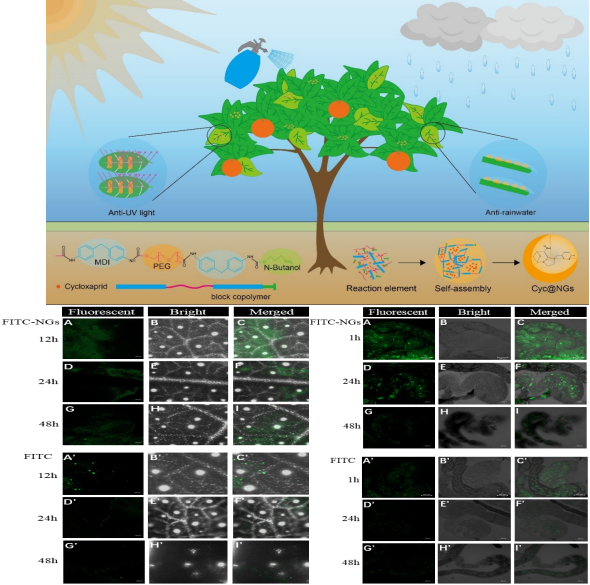
-
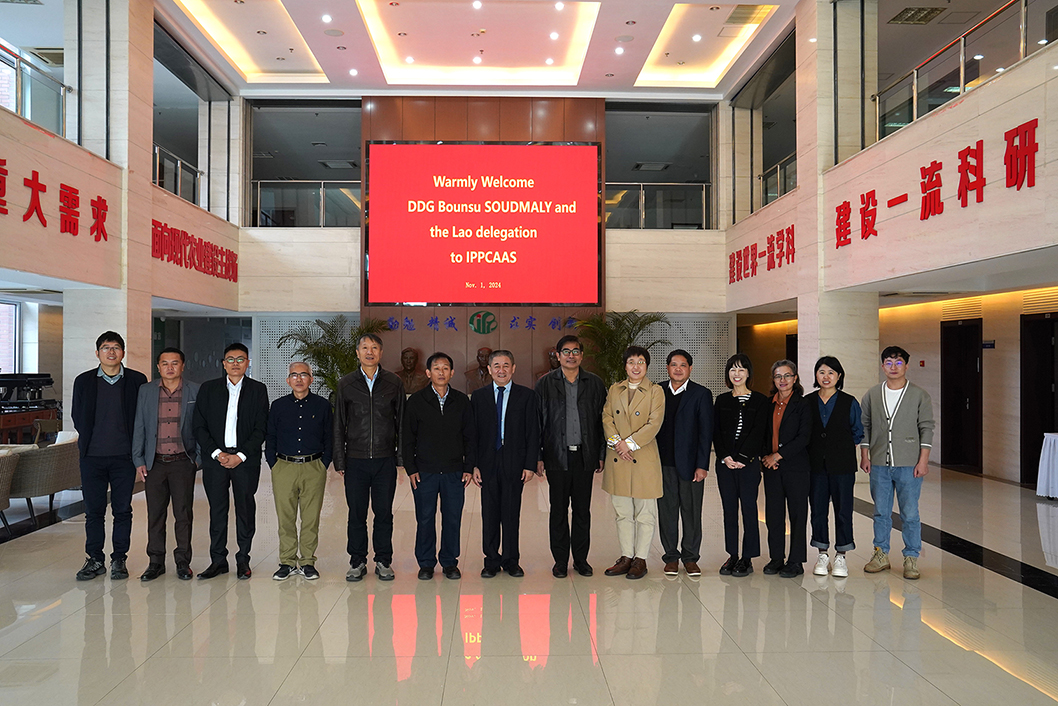 The Lao PDR-China Joint Laboratory for Plant Protection holds technical seminar at IPPCAAS
The Lao PDR-China Joint Laboratory for Plant Protection holds technical seminar at IPPCAAS -
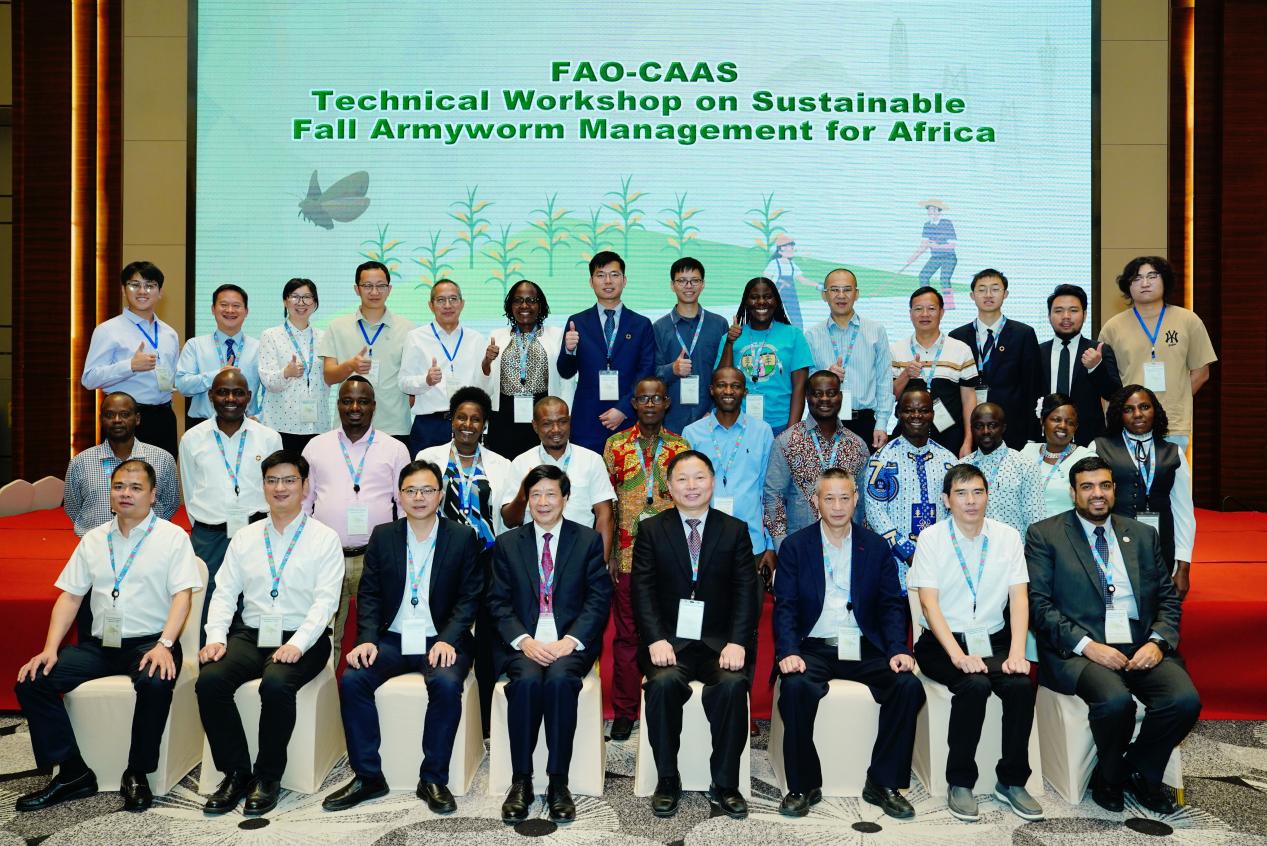 IPPCAAS Successfully Organized the FAO-CAAS Technical Workshop on Sustainable Fall Armyworm Management for Africa in Guangdong
IPPCAAS Successfully Organized the FAO-CAAS Technical Workshop on Sustainable Fall Armyworm Management for Africa in Guangdong -
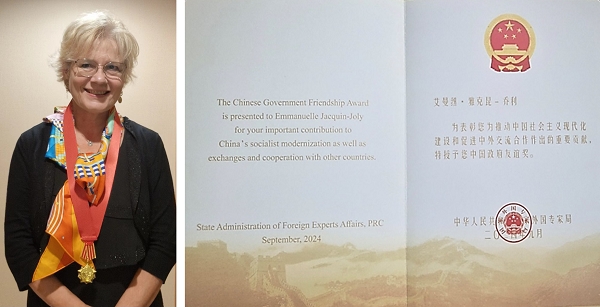 IPPCAAS Hosts Symposium for CAAS-INARE International Joint Laboratory for Plant Protection to Congratulate Professor Emmanuelle Jacquin-Joly on Receiving the Chinese Government Friendship Award
IPPCAAS Hosts Symposium for CAAS-INARE International Joint Laboratory for Plant Protection to Congratulate Professor Emmanuelle Jacquin-Joly on Receiving the Chinese Government Friendship Award -
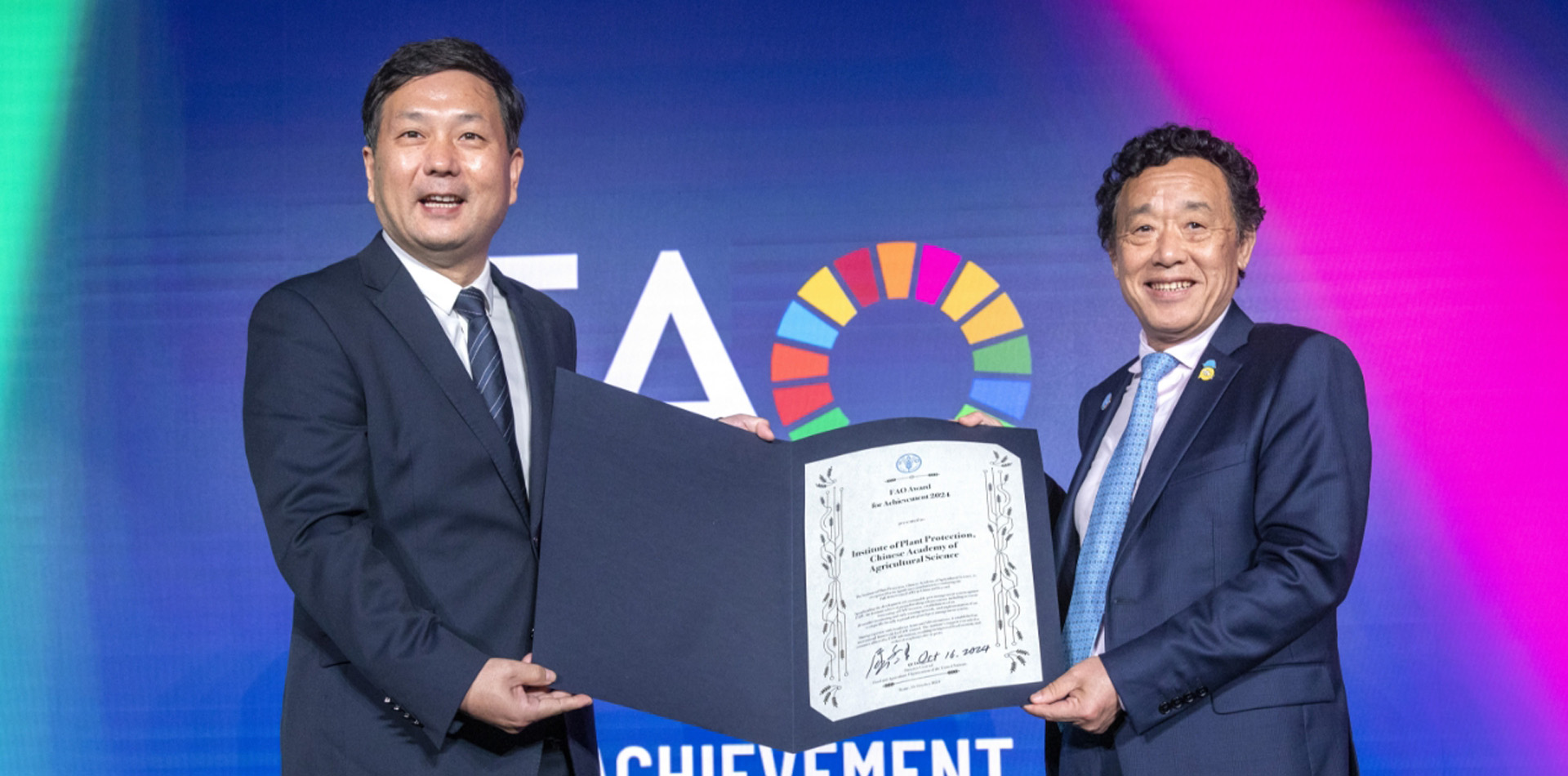 IPPCAAS Wins the 2024 FAO Achievement Award
IPPCAAS Wins the 2024 FAO Achievement Award
